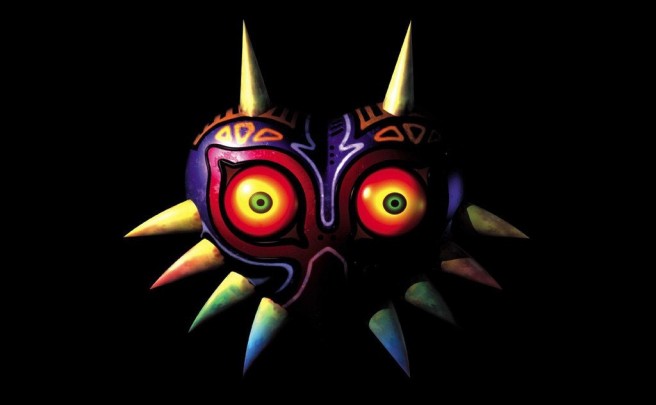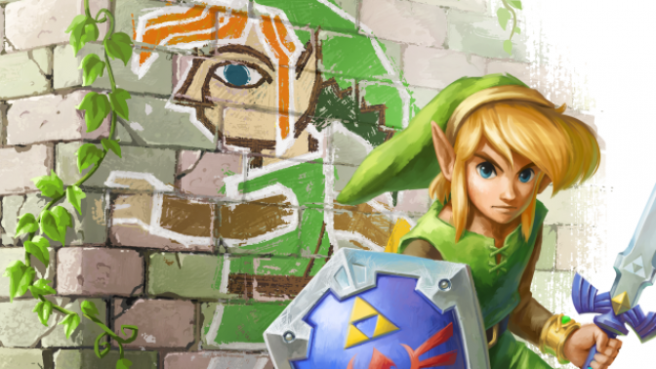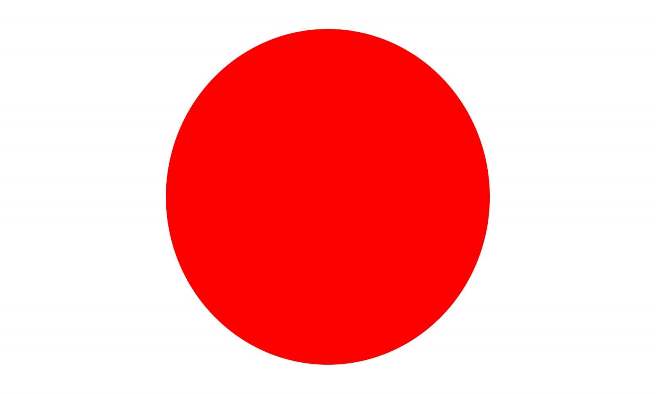UK software sales (Week ending 1/18)
Posted on 12 years ago by Brian(@NE_Brian) in 3DS, DS, News, Wii, Wii U | 0 comments
This week’s UK software sales are as follows:
Individual formats
| LW | TW | Title | Format | Label | Publisher | |||
| 1 | 1 | FIFA 14 | PS4 | EA SPORTS | ELECTRONIC ARTS | |||
| 4 | 2 | KILLZONE: SHADOW FALL | PS4 | SONY COMPUTER ENT. | SONY COMPUTER ENT. | |||
| 7 | 3 | MINECRAFT: XBOX 360 EDITION | XB360 | MICROSOFT | MICROSOFT | |||
| 6 | 4 | FIFA 14 | XB360 | EA SPORTS | ELECTRONIC ARTS | |||
| 5 | 5 | CALL OF DUTY: GHOSTS | PS4 | ACTIVISION | ACTIVISION BLIZZARD | |||
| 10 | 6 | FIFA 14 | XB ONE | EA SPORTS | ELECTRONIC ARTS | |||
| 8 | 7 | BATTLEFIELD 4 | PS4 | EA GAMES | ELECTRONIC ARTS | |||
| 12 | 8 | FIFA 14 | PS3 | EA SPORTS | ELECTRONIC ARTS | |||
| 2 | 9 | CALL OF DUTY: GHOSTS | XB360 | ACTIVISION | ACTIVISION BLIZZARD | |||
| 9 | 10 | ASSASSIN’S CREED IV: BLACK FLAG | XB360 | UBISOFT | UBISOFT | |||
| 14 | 11 | ASSASSIN’S CREED IV: BLACK FLAG | PS4 | UBISOFT | UBISOFT | |||
| 13 | 12 | BATTLEFIELD 4 | XB ONE | EA GAMES | ELECTRONIC ARTS | |||
| 3 | 13 | GRAND THEFT AUTO V | XB360 | ROCKSTAR | TAKE 2 | |||
| 15 | 14 | FORZA MOTORSPORT 5 | XB ONE | MICROSOFT | MICROSOFT | |||
| 19 | 15 | FOOTBALL MANAGER 2014 | PC | SEGA | SEGA | |||
| 17 | 16 | BATTLEFIELD 4 | XB360 | EA GAMES | ELECTRONIC ARTS | |||
| 24 | 17 | LEGO MARVEL SUPER HEROES | XB360 | WARNER BROS. INTERACTIVE | WARNER BROS. INTERACTIVE | |||
| 20 | 18 | CALL OF DUTY: GHOSTS | XB ONE | ACTIVISION | ACTIVISION BLIZZARD | |||
| 23 | 19 | LEGO MARVEL SUPER HEROES | PS4 | WARNER BROS. INTERACTIVE | WARNER BROS. INTERACTIVE | |||
| 26 | 20 | ALIENS: COLONIAL MARINES | XB360 | SEGA | SEGA | |||
| 25 | 21 | DEAD RISING 3 | XB ONE | MICROSOFT | MICROSOFT | |||
| 18 | 22 | ASSASSIN’S CREED IV: BLACK FLAG | PS3 | UBISOFT | UBISOFT | |||
| 11 | 23 | GRAND THEFT AUTO V | PS3 | ROCKSTAR | TAKE 2 | |||
| – | 24 | MARIO PARTY: ISLAND TOUR | 3DS | NINTENDO | NINTENDO | |||
| 22 | 25 | NEED FOR SPEED: RIVALS | PS4 | EA GAMES | ELECTRONIC ARTS | |||
| 21 | 26 | JUST DANCE 2014 | WII | UBISOFT | UBISOFT | |||
| 31 | 27 | BATTLEFIELD 4 | PS3 | EA GAMES | ELECTRONIC ARTS | |||
| 30 | 28 | KNACK | PS4 | SONY COMPUTER ENT. | SONY COMPUTER ENT. | |||
| 27 | 29 | NEED FOR SPEED: RIVALS | XB360 | EA GAMES | ELECTRONIC ARTS | |||
| 16 | 30 | CALL OF DUTY: GHOSTS | PS3 | ACTIVISION | ACTIVISION BLIZZARD | |||
| 29 | 31 | RYSE: SON OF ROME | XB ONE | MICROSOFT | MICROSOFT | |||
| 33 | 32 | ASSASSIN’S CREED IV: BLACK FLAG | XB ONE | UBISOFT | UBISOFT | |||
| 32 | 33 | GEARS OF WAR: JUDGMENT | XB360 | MICROSOFT | MICROSOFT | |||
| 36 | 34 | ALIENS: COLONIAL MARINES | PS3 | SEGA | SEGA | |||
| 28 | 35 | GRAN TURISMO 6 | PS3 | SONY COMPUTER ENT. | SONY COMPUTER ENT. | |||
| 34 | 36 | WWE 2K14 | XB360 | 2K SPORTS | TAKE 2 | |||
| 38 | 37 | POKEMON X | 3DS | NINTENDO | NINTENDO | |||
| 40 | 38 | SAINTS ROW IV | XB360 | DEEP SILVER | KOCH MEDIA | |||
| 39 | 39 | POKEMON Y | 3DS | NINTENDO | NINTENDO | |||
| – | 40 | LEGO MARVEL SUPER HEROES | PS3 | WARNER BROS. INTERACTIVE | WARNER BROS. INTERACTIVE |
All formats
| LW | TW | Title | Developer | Label | Publisher | |||
| 1 | 1 | FIFA 14 | EA CANADA | EA SPORTS | ELECTRONIC ARTS | |||
| 2 | 2 | CALL OF DUTY: GHOSTS | INFINITY WARD | ACTIVISION | ACTIVISION BLIZZARD | |||
| 3 | 3 | BATTLEFIELD 4 | DIGITAL ILLUSIONS | EA GAMES | ELECTRONIC ARTS | |||
| 4 | 4 | ASSASSIN’S CREED IV: BLACK FLAG | UBISOFT (MONTREAL) | UBISOFT | UBISOFT | |||
| 6 | 5 | LEGO MARVEL SUPER HEROES | TRAVELLER’S TALES | WARNER BROS. INTERACTIVE | WARNER BROS. INTERACTIVE | |||
| 8 | 6 | KILLZONE: SHADOW FALL | GUERRILLA GAMES | SONY COMPUTER ENT. | SONY COMPUTER ENT. | |||
| 7 | 7 | NEED FOR SPEED: RIVALS | GHOST GAMES | EA GAMES | ELECTRONIC ARTS | |||
| 9 | 8 | MINECRAFT: XBOX 360 EDITION | 4J STUDIOS | MICROSOFT | MICROSOFT | |||
| 5 | 9 | GRAND THEFT AUTO V | ROCKSTAR NORTH | ROCKSTAR | TAKE 2 | |||
| 10 | 10 | ALIENS: COLONIAL MARINES | GEARBOX SOFTWARE | SEGA | SEGA | |||
| 11 | 11 | JUST DANCE 2014 | UBISOFT (FRANCE) | UBISOFT | UBISOFT | |||
| 12 | 12 | FORZA MOTORSPORT 5 | TURN 10 STUDIOS | MICROSOFT | MICROSOFT | |||
| 14 | 13 | FOOTBALL MANAGER 2014 | SPORTS INTERACTIVE | SEGA | SEGA | |||
| 15 | 14 | WWE 2K14 | YUKE’S | 2K SPORTS | TAKE 2 | |||
| 13 | 15 | BATMAN: ARKHAM ORIGINS | WB GAMES MONTREAL | WARNER BROS. INTERACTIVE | WARNER BROS. INTERACTIVE | |||
| 19 | 16 | NBA 2K14 | VISUAL CONCEPTS | 2K SPORTS | TAKE 2 | |||
| 18 | 17 | DEAD RISING 3 | CAPCOM VANCOUVER | MICROSOFT | MICROSOFT | |||
| – | 18 | MARIO PARTY: ISLAND TOUR | ND CUBE | NINTENDO | NINTENDO | |||
| 26 | 19 | LEGO BATMAN 2: DC SUPER HEROES | TRAVELLER’S TALES | WARNER BROS. INTERACTIVE | WARNER BROS. INTERACTIVE | |||
| 16 | 20 | DEAD ISLAND: RIPTIDE | TECHLAND | DEEP SILVER | KOCH MEDIA | |||
| 27 | 21 | KNACK | SONY COMPUTER ENT. | SONY COMPUTER ENT. | SONY COMPUTER ENT. | |||
| 23 | 22 | LEGO THE LORD OF THE RINGS | TRAVELLER’S TALES | WARNER BROS. INTERACTIVE | WARNER BROS. INTERACTIVE | |||
| 22 | 23 | DISNEY INFINITY | AVALANCHE SOFTWARE | DISNEY INFINITY | DISNEY INTERACTIVE STUDIOS | |||
| 21 | 24 | MAX PAYNE 3 | ROCKSTAR VANCOUVER | ROCKSTAR | TAKE 2 | |||
| 24 | 25 | SAINTS ROW IV | DEEP SILVER VOLITION | DEEP SILVER | KOCH MEDIA | |||
| 17 | 26 | TOMB RAIDER | CRYSTAL DYNAMICS | SQUARE ENIX | SQUARE ENIX EUROPE | |||
| 25 | 27 | RYSE: SON OF ROME | CRYTEK | MICROSOFT | MICROSOFT | |||
| 28 | 28 | SKYLANDERS SWAP FORCE | BEENOX | SKYLANDERS | ACTIVISION BLIZZARD | |||
| 29 | 29 | GRID 2 | CODEMASTERS | CODEMASTERS | CODEMASTERS | |||
| 30 | 30 | GEARS OF WAR: JUDGMENT | EPIC GAMES/PEOPLE CAN FLY | MICROSOFT | MICROSOFT | |||
| 20 | 31 | GRAN TURISMO 6 | POLYPHONY DIGITAL | SONY COMPUTER ENT. | SONY COMPUTER ENT. | |||
| 33 | 32 | SONIC & ALL STARS RACING TRANSFORMED | SUMO DIGITAL | SEGA | SEGA | |||
| 31 | 33 | POKEMON X | GAME FREAK | NINTENDO | NINTENDO | |||
| 32 | 34 | POKEMON Y | GAME FREAK | NINTENDO | NINTENDO | |||
| – | 35 | INJUSTICE: GODS AMONG US ULTIMATE ED. | HIGH VOLTAGE | WARNER BROS. INTERACTIVE | WARNER BROS. INTERACTIVE | |||
| 38 | 36 | THE ELDER SCROLLS V: SKYRIM – LEGENDARY | BETHESDA | BETHESDA SOFTWORKS | BETHESDA SOFTWORKS | |||
| – | 37 | SUPER MARIO 3D WORLD | NINTENDO | NINTENDO | NINTENDO | |||
| 36 | 38 | THE LEGEND OF ZELDA: LINK BETWEEN WORLDS | NINTENDO | NINTENDO | NINTENDO | |||
| – | 39 | MADDEN NFL 25 | EA TIBURON | EA SPORTS | ELECTRONIC ARTS | |||
| 35 | 40 | ANIMAL CROSSING: NEW LEAF | NINTENDO | NINTENDO | NINTENDO |
More: Chart-Track, charts, sales, top, UK
Rune Factory 4 no longer coming to Europe
Posted on 12 years ago by Brian(@NE_Brian) in 3DS, News | 7 Comments
Marvelous AQL has pulled the plug on its Rune Factory 4 launch plans for Europe, the company announced today.
The publisher said in an official statement that it “has made every effort to secure the title’s release for this territory,” but was ultimately not able to do so.
Marvelous AQL thanked fans for their support/enthusiasm, and noted that more announcements about new titles will be made “over the coming months.”
The statement in full reads:
More: Europe, MAQL Europe, Marvelous AQL, top
Zelda: A Link Between Worlds – Aonuma’s production team made special request to include Majora’s Mask in Link’s house
Posted on 12 years ago by Brian(@NE_Brian) in 3DS, General Nintendo, News | 3 Comments
Zelda: A Link Between Worlds has a few references to Majora’s Mask. One of these, as many fans are aware, is the inclusion of the mask in Link’s house.
Game director Hiromasa Shikata told Game Informer this month that the reference “was a special request from Aonuma’s production team.” He also teased, “Now why would they ask us to do that?”
Super Smash Bros. for 3DS screenshot (1/20/14) – first look at single-player
Posted on 12 years ago by Brian(@NE_Brian) in 3DS, Screenshots | 6 Comments
ONM review scores – February 2014
Posted on 12 years ago by Brian(@NE_Brian) in 3DS, 3DS eShop, News, Wii U, Wii U eShop | 0 comments
This month’s ONM review scores are as follows:
Mario Party: Island Tour – 60%
Scribblenauts Unlimited – 69%
RUSH – 68%
Adventure Time: Explore the Dungeon Because I Don’t Know! – 40%
3D Super Hang-On – 80%
3D Sonic the Hedgehog – 83%
The Legend of Zelda: A Link to the Past – 94%
3D Space Harrier – 69%
3D Ecco the Dolphin – 54%
3D Galaxy Force II – 61%
3D Altered Beast – 23%
One Piece: Romance Dawn – 35%
Regular Show: Mordecai and Rigby in 8-bit Land – 39%
Thanks to joclo for the tip.
More: review scores
60 FPS not necessarily a standard for all future Zelda games
Posted on 12 years ago by Brian(@NE_Brian) in 3DS, General Nintendo, News | 3 Comments
For The Legend of Zelda: A Link Between Worlds, Nintendo managed to implement silky smooth 60 frames per second. This begs the question: could future Zelda titles incorporate the same rate as well?
Well… no. Zelda: A Link Between Worlds director Hiromasa Shikata says 60 FPS isn’t necessarily a standard for additional entries in the series. In the case of the 3DS game, the team wanted to ensure a “smooth” look for the 3D visuals, “allow the players to clearly see enemy movements, and keep everything moving crisply as with previous games.” Having said that, “This doesn’t mean that all future Zelda titles will run at 60 frames per second.”
Shikata told Game Informer:
It’s really the concept of the game that changes whether you want to keep the volume of information in the game low and running at 60 frames per second. We kept it at 60 to make the 3D look smooth, allow the players to clearly see enemy movements, and keep everything moving crisply as with previous games. This doesn’t mean that all future Zelda titles will run at 60 frames per second.
Bravely Second will offer improved visuals compared to its predecessor
Posted on 12 years ago by Brian(@NE_Brian) in 3DS, News | 0 comments
Bravely Second is still a long ways off, but producer Tomoya Asano and designer Akihiko Yoshida have been regularly talking with Japanese outlets about the upcoming 3DS game.
In a new interview with Famitsu, Yoshida said that the game will include enhanced graphics compared to Bravely Default. He said:
Basically the [battle] system does not change but the graphics are better than in the previous game. It’s possible to fill a dense background with thicker lines and strike a balance between the two. In the previous game, we felt the resolution was too low when zooming in. But this time, the denser background and camera zoom in does not affect quality, and unlike the previous game I don’t feel that [Bravely Second] falls apart when the camera is closer.
Best Buy: Sonic Lost World Wii U for $30, 3DS for $20; Pac-Man for $20 as well
Posted on 12 years ago by Brian(@NE_Brian) in 3DS, News, Wii U | 0 comments
Update: Sonic Lost World (Wii U) price-matched on Amazon.
Original: Best Buy has a few games on sale this week – notably Sonic Lost World and Pac-Man and the Ghostly Adventures.
Here’s a roundup of the latest Nintendo deals from the retailer:
Pac-Man and the Ghostly Adventures (3DS) – $19.99
Pac-Man and the Ghostly Adventures (Wii U) – $19.99
Sonic Lost World (3DS) – $19.99
Sonic Lost World (Wii U) – $29.99
These offers should be valid for the next week.
Media Create software sales (1/6 – 1/12) – Top 50
Posted on 12 years ago by Brian(@NE_Brian) in 3DS, News, Wii U | 0 comments
This week’s expanded Japanese software sales are as follows:
01./00. [3DS] Kirby Triple Deluxe
02./01. [3DS] PazuDora Z: Puzzle & Dragons Z
03./02. [3DS] Pokemon X / Y #
04./03. [3DS] The Legend of Zelda: A Link Between Worlds #
05./04. [3DS] Monster Hunter 4 #
06./06. [PS3] Final Fantasy X/X-2 HD Remaster
07./19. [3DS] Youkai Watch
08./09. [3DS] Battle For Money Sentouchuu: Densetsu no Shinobi no Survival Battle!
09./05. [WIU] Super Mario 3D World
10./07. [PSV] Final Fantasy X/X-2 HD Remaster: Twin Pack #
11./08. [3DS] Animal Crossing: New Leaf #
12./30. [3DS] Attack on Titan: The Last Wings of Mankind
13./22. [PS3] Grand Theft Auto V
14./10. [PS3] New Dynasty Warriors: Gundam
15./13. [3DS] Inazuma Eleven Go Galaxy: Big Bang / Supernova
16./11. [3DS] Friend Collection: New Life #
17./12. [3DS] Mario Kart 7
18./21. [PSV] New Dynasty Warriors: Gundam
19./25. [PS3] World Soccer Winning Eleven 2014
20./24. [PS3] Gran Turismo 6 #
More: charts, Japan, Media Create, sales, top
Photos of the Zelda Club Nintendo 3DS Game Card Case
Posted on 12 years ago by Brian(@NE_Brian) in 3DS, General Nintendo, Images | 4 Comments
ValueError thrown
Path cannot be empty





